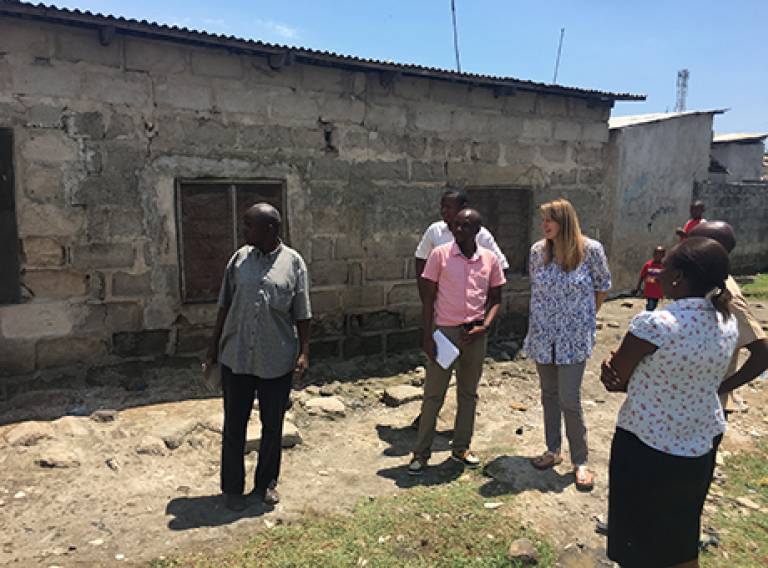Risk reduction in informal settlements
28 November 2016

In order to promote risk reduction and inclusive and accountable planning, local institutions need to have a better understanding of risks and vulnerabilities to which the population in their jurisdiction are exposed to, for example every-day and small scale disasters, such as water-borne illnesses (typhoid and cholera, urinary tract infections, etc), malaria, theft and crime, localised flooding, fires, traffic accidents, etc.
Within this context, an ongoing research project led by DPU's Cassidy Johnson and Emmanuel Osuteye and funded by AXA and undertaken in partnership with CCI and Ardhi University in Tanzania presents an exciting opportunity to bring into public and policy debate a discussion of how to measure the impacts of environmental risks on people living in informal settlements and how to get policy and community action on addressing these risks.
The innovative nature of this project is to bring into public discussion what measurements should be used to show the realities of risks low-income people face in a way that is practical and straightforward so policy-makers can take action.
Based on these capacities, and directed by the project aims, three research questions orient the activities:
1: What are low-income women, men and children's experiences of environmental risks in urban areas and how are they detrimentally impacted by the stresses and shocks of environmental burdens?
2: What metrics can be applied by local-level decision-makers to measure the burdens arising from of these risks so that they can make informed planning decisions? How can these metrics feed into on-going initiatives to measure urban resilience in Dar es Salaam and beyond?
3: What methods of working collaboratively between communities and other local-level decision-makers could ensure that the necessary data is systematically collected and acted on?
 Close
Close

